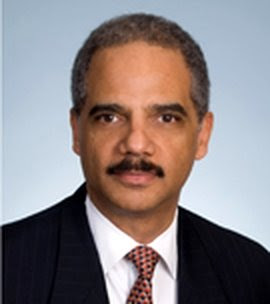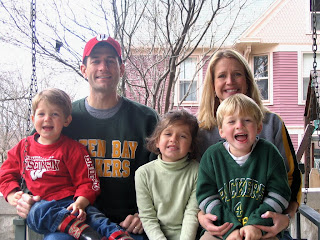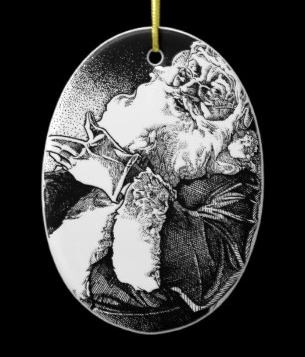Mr. Holder, was born in New York City the Bronx and grew up in East Elmhurst.
A child of a middle class family, his father emigrated from Barbados when he was about 12 joined the Army during World War II and was in the real estate industry. His mother was a telephone operator and secretary to an Episcopal priest. Until he was 10 years old he attended public schools there, then, in the fourth grade, he was selected to participate in a program for intellectually gifted kids. Holder's score was good enough to get him into Stuyvesant High an hour and a half commute away in Manhattan, graduating in 1969 he earned a Regents Scholarship.
In 1969 Holder entered college at Columbia, majored in American History, and graduated in 1973. Mr. Holder then attended Columbia Law School. While in law school, working for the NAACP Legal Defense and Educational Fund Inc. after his first year and the U.S. Department of Justice after his second 1974 and 1975, respectively. He graduated in 1976.
In 1988, Mr. Holder was nominated by President Reagan to become an Associate Judge of the Superior Court of the District of Columbia. He was confirmed by the Senate and his investiture occurred in October of that year. Over the next five years, Judge Holder presided over civil and criminal trials and matters. Many of the trials involved homicides and other crimes of violence.
In 1993, President Clinton nominated Mr. Holder to become the United States Attorney for the District of Columbia. Mr. Holder was confirmed in October of that year and served as the head of the largest U.S. Attorney's Office in the nation for nearly four years. As U.S. Attorney, Mr. Holder created a Domestic Violence Unit, implemented a community prosecution pilot project to work with residents and local government agencies, supported enforcement on hate crimes, a strategy to improve the manner in which agencies handle cases involving the abuse of children, community outreach program to connect the U.S. Attorney's Office with the citizens, and "Operation Ceasefire," an initiative designed to reduce violent crime.
On April 14, 1997, President Clinton nominated Mr. Holder to be the Deputy Attorney General. As Deputy Attorney General, Mr. Holder was responsible for the supervision of the day-to-day operation of the Department of Justice. As Deputy Attorney General Mr. Holder was at that time the highest-ranking black person in law enforcement in the history of the United States. Deputy Attorney General Holder was active in the organization Concerned Black Men, which seeks to help the youth of the District of Columbia with the problems they face.
Mr. Holder supervised the Department's litigating, enforcement, and administrative components in both civil and criminal matters. The Department developed and issued guidelines on the criminal prosecution of corporations and issued guidelines on the use of the False Claims Act in civil health care matters. A task force developed the regulation concerning the appointment of special counsels to investigate allegations involving high-level federal officials. He began the Department's Children Exposed to Violence Initiative and made Department priorities enforcement efforts in health care fraud, computer crimes and software piracy. At the request of the President, Lawyers for One America a multi-agency, public/private partnership designed to diversify the legal profession and to increase the amount of pro bono work done by the nation's attorneys.
In 1998 Mr. Holder had been considered a possible challenger to Washington's mayor, Marion S. Barry Jr.
On January 19, 2001, the last full day of the Clinton administration, a pardon application for a commodities trader named Marc Rich was not the most pressing issue, Holder believed the application had such a small shot at being granted. When the White House asked for his view on the pardon he gave it: "neutral leaning towards favorable."
The decision turned out to be a costly one for Holder. On Jan. 20, President Clinton issued 140 pardons, including one for Rich -- whose ex-wife turned out to have donated large amounts of money to the Clinton Presidential Library while Clinton was in office. Critics claimed that Rich's freedom had been bought.
For the first time in his career, Holder faced an assault on his reputation and integrity.
Later in 2001 Holder joined the firm of Covington and Burling as a litigation partner handling civil and criminal cases, domestic and international advisory matters and internal corporate investigations. A partner in the law firm Holder has had many high-profile clients, including the National Football League in its investigation of dog-fighting charges against Atlanta Falcons quarterback Michael Vick.
Eric Himpton Holder, Jr. Born: 21, January 1951 Queens, NY. Covington & Burling LLP, Partner eholder@cov.com or Download V-card, Covington & Burling LLP 1201 Pennsylvania Avenue, NW Washington, DC 20004-2401, Tel: 202.662.5372
Mr. Holder is a litigation partner who handles, among other matters, civil and criminal cases, domestic and international advisory matters and internal corporate investigations.
Holder argued in 2002 that detainees in the "war on terror" are not technically entitled to protection under the Geneva Conventions.
In a CNN interview in 2004, Holder was critical of the Bush Justice Department's use of the Patriot Act, saying it had been enforced in less-than-transparent way.
In late 2007, Holder joined Senator Barack Obama's presidential campaign as a senior legal advisor. He served on Obama's vice presidential selection committee. In June 2008, Holder was considered to be a leading candidate for Attorney General under an Obama Administration. On November 18, 2008, President-elect Barack Obama selected Eric Holder as his Attorney General. His nomination approved by the U.S. Senate, he was be the first African-American to head the Justice Department.
Mr. Holder's community activities include philanthropic boards including, Columbia University, the Meyer Foundation, Save the Children, and his long time membership in the organization Concerned Black Men, a group that seeks to help the youth of the District of Columbia with problems ranging from teenage pregnancy to sub-par academic achievement. He has received numerous awards and honorary degrees and is featured in The Best Lawyers in America 2007. Mr. Holder was profiled in the June 2008 issue of The American Lawyer and was recognized as one of "The Most 50 Influential Minority Lawyers in America" by The National Law Journal. He has also been identified by Legal Times as one of the "Greatest Washington Lawyers of the Past 30 Years."
He has also served on the board of MCI prior to and during its merger with Verizon. Mr. Holder was a member of the U.S. Sentencing Commission Ad Hoc Advisory Group that examined, and made recommendations to revise, the organizational sentencing guidelines and was Chairman of Eastman Kodak's External Diversity Advisory Panel.
In 1989, Holder met his wife to be, Sharon Malone, at a fundraiser for Concerned Black Men and the Coalition of 100 Black Women. Mr. Holder lives in Washington, DC with his wife, Dr. Sharon Malone an obstetrician-gynecologist and a graduate of Harvard University and Columbia Medical School and their three children, Maya, Brooke and Eric.
TEXT RESOURCES:
- 10 Things You Didn’t Know About Eric Holder
- Prosecutor No Stranger To Corruption in Politics
- Making History With Obama
- Breakout Moderator Biography
- Covington & Burling LLP, Biographies, Eric H. Holder Jr.
- Eric H. Holder, Jr.
- USDOJ: Deputy Attorney General: Bio
- Eric Holder - Wikipedia
- The HistoryMakers® Video Oral History Interview with Eric H. Holder, Jr.
- Obama picks Caroline Kennedy, Holder, Johnson to lead VP search
- Nominee Confirmed For Deputy Position At the Justice Dept.
- Eric H. Holder Jr., Attorney General - Council on Foreign Relations













